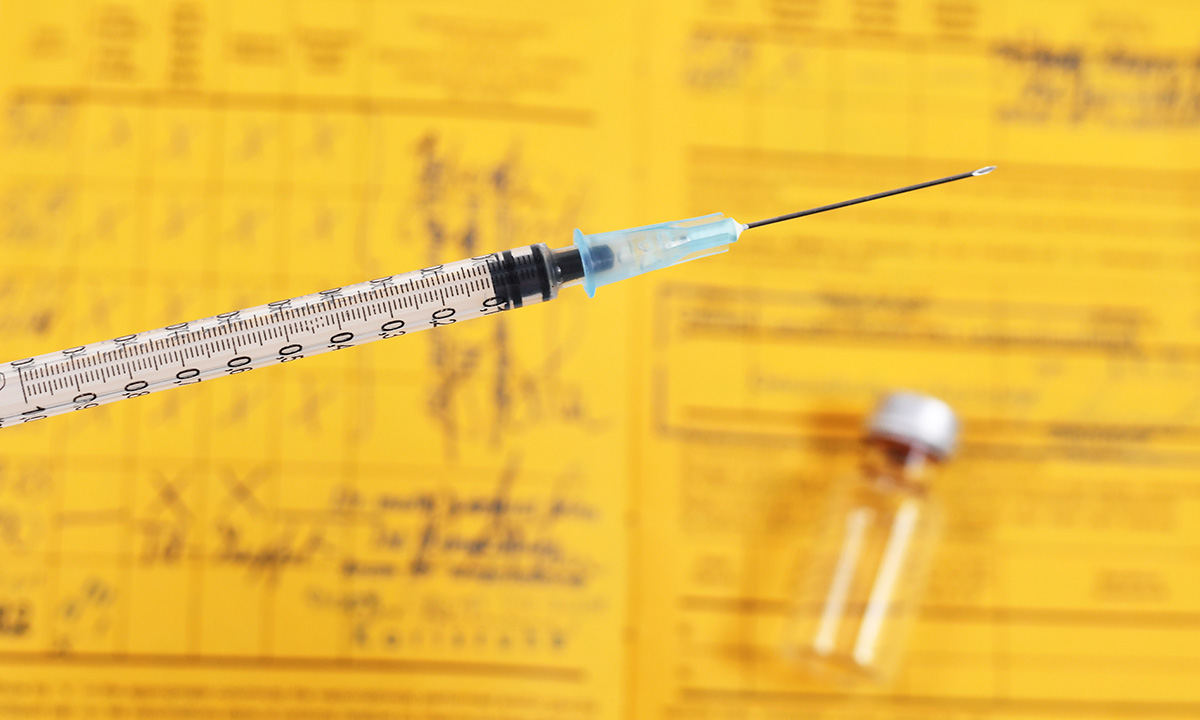Some 300 W. Virginia School Vaccine Exemptions Granted Under New, Laxer Policy
In just five months, religious and philosophical exemptions outpace medical exemptions with a 100% approval rate, records obtained by The 74 show.

Get stories like this delivered straight to your inbox. Sign up for The 74 Newsletter
Updated, May 27
Two groups filed a lawsuit against West Virginia’s state Department of Health, its Bureau for Public Health and agency leaders on Friday, challenging Gov. Patrick Morrisey’s January executive order, which opened the door for religious and philosophical exemptions to mandatory school vaccination policies. The American Civil Liberties Union’s West Virginia chapter and Mountain State Justice filed the suit in Kanawha County Circuit Court on behalf of two parents with immunocompromised children, according to reporting by West Virginia Watch.
Just over 330 requests for religious and philosophical exemptions to West Virginia’s school vaccine policy have been submitted — and approved — for this school year and 35 have been granted for the coming year, according to records obtained by The 74.
The newly approved religious and philosophical exemptions already outpace the 203 permanent medical exemptions granted in the state over the past decade, at one time the only exemptions allowed in West Virginia.
Before January, when Gov. Patrick Morrisey signed an executive order opening the door for broader exemptions, the state had some of the nation’s strictest childhood vaccination policies.
The loosening of those policies is occurring amid a deadly measles outbreak that has infected over 1,000 people across 30 states and despite state legislators rejecting a bill in March which would have codified religious exemptions into state law. The conflict between the governor’s order and the legislature’s action has led to confusion over how West Virginia officials should proceed and could ultimately lead to legal action between the two branches of government.
In the meantime, the West Virginia Department of Health is granting religious and philosophical exemptions based on the governor’s order and shared those numbers in response to a Freedom of Information Act request by The 74.
No requests for the newer category of exemptions has been denied, the department said. In contrast, 125 requests for medical exemptions to mandatory school vaccines have been rejected since 2015. Temporary medical exemptions have been granted to 288 West Virginia children in the past decade.
Richard Hughes, a George Washington University law professor and leading vaccine law expert, said the 331 religious and philosophical exemptions sought in just five months represent a “drastic, dramatic increase in the request for exemptions, and that’s going to potentially have public health consequences.”

He added the state appears to be approving them liberally and without real scrutiny.
“Clearly, when you open the door to these types of exemptions, people use them,” he said. “There has been evidence before that when only religious exemption is available, people request them without any really sincerely held belief. This just opens the floodgates.”
While the 331 students who have received exemptions represent a very small percentage of the approximately 251,000 children enrolled in public schools across the state, experts fear the number will continue to rapidly climb, especially at the start of the coming school year.
“You see how fast we approved those? Hundred percent approved … So if we keep allowing an executive order that goes against West Virginia code, it’s going to change the vaccination rate …” said Sissy Price, a registered nurse who serves as co-director of West Virginia Families for Immunization. “And it’s not a matter of if it’s going to happen, it’s a matter of when.”

Experts also emphasized the importance of knowing which regions or schools in West Virginia the exempted students come from to better understand the impact on herd immunity and to allow parents — especially those of immunocompromised students — to make informed decisions about where to send their kids to school.
Despite the governor’s insistence that the state collect that information, an official at the Health Department wrote in an email to The 74, “Nobody in the Department of Health or the Bureau for Public [Health] tracks that.”
“There’s a failure of government there,” said Northe Saunders, executive director of the pro-vaccine SAFE Communities Coalition. “There’s a failure of making sure that parents can make the best informed decision that they can if we don’t know what immunization rates are like at the school level.”
The governor’s office and the Department of Health did not respond to requests for comment.
So far, West Virginia has no reported measles cases. Two children, both of whom were unvaccinated, have died during the current outbreak, whose case numbers have already surpassed 2024’s total and mark the second-highest number of confirmed cases in a year since the disease was declared eradicated in the U.S. in 2000. Some 96% of reported infections have involved a person who was unvaccinated or whose status was unknown and 13% have resulted in hospitalization.
In issuing his Jan. 14 executive order, Morrisey relied on an interpretation of the state’s 2023 Equal Protection for Religion Act.
He argued that the law as it stood “forces” some West Virginians “to choose between their religious belief and their children’s fundamental right to public education,” and directed the commissioner of the Bureau for Public Health and the state health officer to establish a process for parents to object. The executive order noted that a “written, signed objection” was sufficient.
Based on the legislature voting down the measure to codify the broader exemption category, state schools Superintendent Michele Blatt issued a memo earlier this month to county superintendents recommending that students not be allowed to attend school next year without required immunizations, regardless of requests for religious exemptions.
“We are faced with the fact that state law has not been changed by the Legislature and there is no religious exemption provided for in West Virginia law,” Blatt wrote, according to reporting by West Virginia Watch.
But, by the end of the day she rescinded the memo, saying she had done so “at the Governor’s request.”
Morrisey then issued a letter May 9 saying that despite the legislative hurdle, the executive order “still stands, and I have no intention of rescinding it.” He further clarified the process to receive an exemption: Each year, parents or guardians must send a signed letter with basic information including their child’s name, date of birth and mailing address. Notably, the letter does not need to include the reason for the requested exemption.
In the wake of this confusion, some school districts have begun seeking legal guidance about how to respond.
West Virginia is not an outlier in its quest to allow parents to opt their children out of the measles, mumps and rubella vaccine that is a requirement in all 50 states for children entering child care and schools.
“It goes towards the general erosion of vaccine policy,” said Saunders. “We’ve seen these kinds of small, incremental changes that are eroding vaccine policy in states across the country. There are still school entry requirements in West Virginia — just like there are in every single state — but this is one other chink in the armor of strong vaccine policy driving strong immunization rates.”
Childhood vaccination rates have been falling since COVID, and there’s fear that decline will accelerate now that Robert F. Kennedy Jr., a well-known vaccine skeptic, is heading the U.S. Department of Health & Human Services. He initially downplayed the measles spread in late February, and on May 14, at his first appearance in Congress since his confirmation, he waffled on the importance of vaccines.
When asked if he would vaccinate a child of his own against measles today he responded, “Probably for measles. What I would say is my opinions about vaccines are irrelevant.”
He continued, “I don’t want to make it seem like I’m being evasive, but I don’t think people should be taking medical advice from me.”
Last week, the Food and Drug Administration, which falls under HHS, released updated guidance for COVID vaccines, saying they may require additional studies before approving the shots for healthy Americans younger than 65.
Candice Lefeber, executive director of West Virginia’s chapter of the American Academy of Pediatrics, said this move played into one of her fears: “I think the administration is going to make it harder for vaccines to be available.”
“Not only are we not going to require it, but then access to vaccines would be compromised,” she continued. “It’s just really disheartening for science and for our country — and we’re in big trouble.”
Get stories like these delivered straight to your inbox. Sign up for The 74 Newsletter

;)
